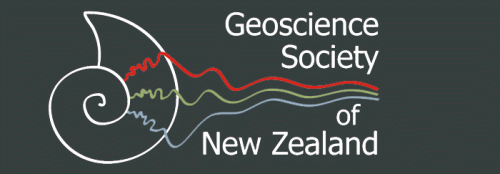Financial Crisis facing New Zealand Universities
Public Statement from the Geoscience Society of New Zealand on the Financial Crisis facing New Zealand Universities
Recent announcements from two New Zealand Universities have the Geoscience Society of New Zealand (GSNZ) deeply concerned about the country’s ability to deliver research and training on natural hazards and climate change. Both Te Herenga Waka Victoria University of Wellington and Te Whare Wananga o Ōtākau University of Otago have well-established teaching and research programmes in the geosciences. But these programmes are now under threat as confirmed by GSNZ members from affected departments at both institutions.
Society President Dr Katherine (Kat) Holt said “Climate change and natural hazards, such as earthquakes, landslides and floods, are phenomena which constitute a clear and present threat to our economy, our society and our way of life. Losing significant research capability from these areas would undermine the planning and response to hazard and climate events in the future”.
Vice-President Dr Sam McColl added “Geoscience education is a springboard that equips students with a unique skillset that bridges understanding of natural processes with the reality of societal needs. Addressing future challenges associated with the transition to green energy, preserving natural resources like critical minerals, and addressing the effects of natural hazards does, and will require a strong workforce trained in geosciences. New Zealand is currently not producing enough geoscientists to meet growing demand for expertise. The proposed cuts will further increase the divide between the supply and demand of a workforce trained in geosciences.”
This loss in capability is not limited to Victoria and Otago universities. We have seen considerable rationalisation in course offerings and staff positions within the geosciences at both the University of Waikato and Massey University in recent years. Across the country, our capability to research and train in the geosciences has been progressively reduced. With the budget shortfalls faced by other universities, it will only be a matter of time before other geoscience departments are further squeezed or cut altogether.
The Geoscience Society of New Zealand joins the New Zealand Institute of Physics, the New Zealand Institute of Chemistry, and the Tertiary Education Union, in calling for urgent government intervention in the financial situation in the tertiary education sector. It is time to take a long hard look at how we ensure our tertiary education institutions are resourced to deliver what New Zealand needs in terms of research and training, rather than just delivering more for students with less whilst also having key capabilities cut in a way that is short-sighted and will ultimately undermine our socioeconomic capability as a nation in the future.
The Geoscience Society represents the interests of geoscientists and the geosciences (geology, geophysics, geochemistry, earth science, physical geography, and environmental science). The 700+ membership includes teachers, researchers at Crown Research Institutes & consultancies, university academics, students, and members of the wider public.

